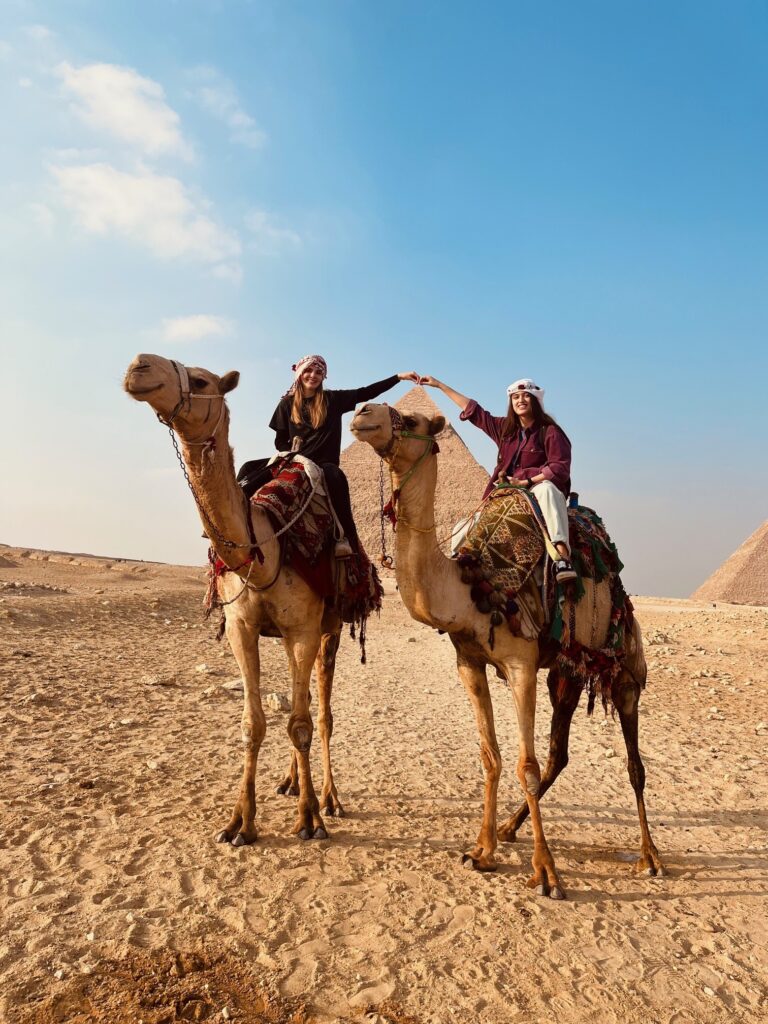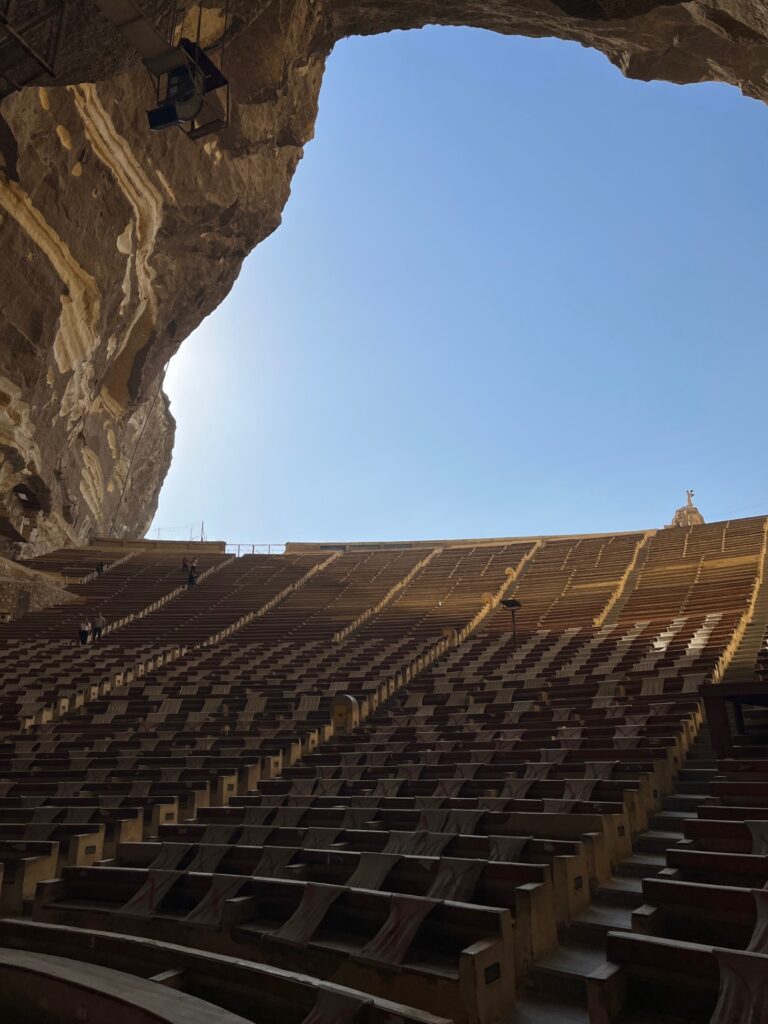My deep interest in Egyptian rap artists and thorough research began in my third year, while on my Year Abroad in Cairo. Initially I was drawn to the underbelly of Egyptian youth pop-culture and artistic expression within the constraints of a conservative and restrictive society, where the government often censors sensitive topics and individual expression that goes against the grain. Egyptian rap music and hip-hop culture is mainly inspired by African-American rappers in the US, whose songs are generally imbued with themes of socio-economic inequality, marginalisation and protest. I was intrigued to explore how Egyptian rap, while drawing upon the African-American experience, was also relevant to Egypt in its unique way, using Egyptian colloquialism, national imagery and cultural references to make the music relatable for Egyptians at large. As the focus on protest is a huge academic discourse in Middle Eastern studies, I was keen to investigate how Egyptian rap music contributes to protest movements, becoming a platform to speak out against the common experiences of hardship, frustration and marginalisation in a country struck by socio-economic troubles and divides. Moreover, I was interested in how Egyptian rappers are role models for the youth, using social media to create their personal image and becoming inspirational icons of success and social mobility to inspire and invigorate the Egyptian youth.
My dissertation addressed the question of ‘authenticity’ and what it means to be an ‘authentic’ rapper. I explored the rap genre’s codes and conventions, Barthes’ semiotics theory about how signs are conveyed by language, and political theory about individual artistic expression being used as ‘protest’ – and I simultaneously applied all of this to the Egyptian context. Focusing on the discourse of ‘street life’ in the rappers’ songs, music videos and representations, I contrasted the ways in which two Egyptian rappers – Marwan Pablo and Wegz – construe and validate their authenticity in different yet complimentary ways in the Egyptian rap scene. I analysed the lyrics of their songs in Arabic, translating them into English for my readers, and looked at the motifs, metaphors and imagery they use to demonstrate how they are ‘real’ rappers – conditioned by the ‘streets’ but also overcoming the streets to reach success. The music videos conveyed similar narratives about gritty street life while flashing material wealth to highlight how far the rappers have come.

I also critically analysed the positive and negative impressions Egyptian rappers convey to Egyptian youth, such as hyper-masculinity and violence, while simultaneously referring to their gratitude to God and standing as beacons of hard-work, determination and success. I concluded that while cliché codes and conventions of the rap genre (such as gangs, violence, money and material success) are prevalent in Egyptian rap music so the rappers present themselves as authentic within the world of rap music, there is still room for personal expression and artistic flare, which makes these two Egyptian rappers unique and relatable for Egyptian youth. In construing their authenticity as rappers, they are full of hope, determination and passion, obtaining success against all odds, which makes them role models.
The Saxon Bursary helped fund my Year Abroad in Egypt; it not only paid living expenses in Cairo but also travel expenses so I could see more of Egypt and experience its rich and diverse social, cultural and geographical landscapes. A notable trip was to the Siwa Oasis, where I experienced simple, peaceful Bedouin life in the natural landscape of the Western Desert – which was spectacular with its salt lakes, huge sand dunes and starry night skies. Trips such as this gave me a greater insight into the complex demographics (i.e. the different segments and lifestyles) of Egyptian society. This was particularly useful when researching and writing my dissertation as it helped me refrain from making sweeping, generalising statements that would risk me undermining the diversity of and oversimplifying Egypt’s society.
The Bursary also contributed to my dissertation research on the ground, where I attended underground hip-hop parties and the rap concert of one of the rappers I was researching. It was at these events that I witnessed first-hand the rappers’ significant impact and influence over their young Egyptian fans, who spanned many social classes and backgrounds. It was clear that each individual fan resonated with the rappers in some way and admired them for their achievements. Many of my Egyptian friends said they adored and supported the rappers because they were like a mirror, reflecting their own experiences, and thus their success against the odds gave them hope that they could do the same. It was phenomenal to be at the concerts and feel the electric energy and excitement of the crowd. One of the most prominent memories from my time in Egypt was being at the rap concert, watching the rappers’ energetic performances and partaking in such a lively, vibrant atmosphere, where dreams and ambitions were born out of hope, determination and solidarity with fellow young people who want to make a change in their lives and the society they live in.

I thoroughly enjoyed researching and writing my dissertation, gaining further insights into Egyptian society, pop-culture and youth movements, as well as learning some cool, quirky Egyptian colloquial language. In particular, I improved my critical thinking and analytical skills and learnt how to effectively collate and summarise swathes of information into a coherent, succinct and clearly structured format. I also had to simplify explanations for readers who had no knowledge of Egypt or rap music.
I am currently completing qualifications in London for a job as a trainee solicitor at an international commercial law firm, where I will regularly use my transferable skills in research, critical thinking and organising large pieces of information into succinct, simplistic formats for busy clients. I am so grateful for the opportunities the Bursary offered me and for how it helped me to achieve my academic goals and further my career ambitions. While my dissertation is unrelated to law, it has certainly been an interesting topic of discussion at networking and social events!






